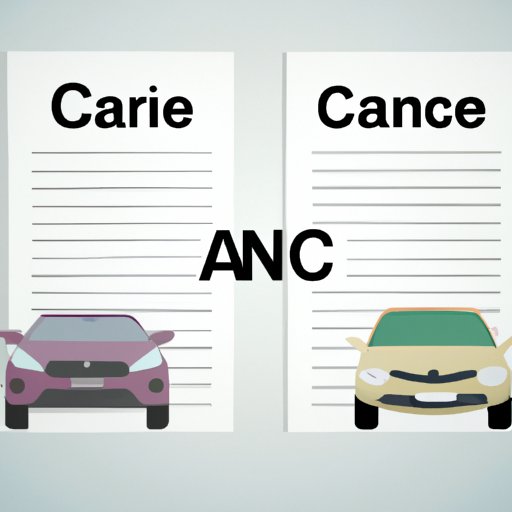Introduction
Trading a financed car is when a person trades in their current car towards the purchase price of a new one, even though they have a loan outstanding on the car. While this may sound like a straightforward process, it can be quite complex and requires careful consideration. In this article, we explore the various aspects of trading a financed car, from understanding your options to navigating the legalities and getting the best deal.

How to Trade a Financed Car
When trading a financed car, the first step is to understand your options. You will need to decide if you want to trade in your car for a different one or pay off the loan and sell the car yourself. Depending on the amount of the loan, the age and condition of the car, and the current market value, one option may be more beneficial than the other.
Once you have decided which option is best for you, it’s important to know what you need to do before trading in your car. This includes finding out the current market value of your car and determining the payoff amount of your loan. You should also gather any documents related to the loan, such as the original loan agreement and any payment records.

The Pros and Cons of Trading a Financed Car
Before making a decision about trading a financed car, it’s important to understand the advantages and disadvantages of doing so.
Advantages
One of the main advantages of trading a financed car is that it can save you time and money. If you are able to find a buyer who is willing to take over the payments on your loan, you don’t have to worry about the hassle of selling the car yourself. Additionally, you may be able to negotiate a better trade-in value for your car if you are trading it in for a new one.
Disadvantages
One of the potential drawbacks of trading a financed car is that you may end up owing more on the loan than the car is worth. This is known as being “upside down” on the loan, and it means that you would have to pay the difference out of pocket. Additionally, the dealership may offer you a lower trade-in value than what the car is actually worth, and you may not be able to negotiate a better deal.

Navigating the Legalities of Trading a Financed Vehicle
It’s important to be aware of the legalities involved with trading a financed car. Knowing your rights and working with lenders can help ensure that the process goes smoothly.
Knowing Your Rights
In most states, you have the right to transfer the title of your car to a new owner. This means that you can legally sell the car or trade it in, even if you still owe money on it. It’s important to check with your state’s laws and regulations to make sure you are following the proper procedures.
Working with Lenders
If you are trading in a car that is still under a loan, you will need to work with the lender to complete the transaction. The lender will need to approve the new loan for the buyer and release the lien on the car. The lender may require additional documentation, such as proof of income, before approving the loan.
Tips for Getting the Best Deal When Trading a Financed Car
When trading a financed car, there are several steps you can take to ensure that you get the best deal possible.
Evaluating Your Vehicle
Before trading in your car, it’s important to evaluate its condition. Make sure to repair any minor issues and consider detailing the interior and exterior. This will help you get the highest trade-in value possible.
Negotiating the Trade-In Value
The trade-in value of your car is determined by the dealership, but you can still negotiate to get the best deal. Do your research ahead of time to determine the average market value of your car and use this information to negotiate the trade-in value.
Considering All Financial Implications
When trading a financed car, it’s important to consider all financial implications. Calculate the total cost of the new loan, including interest, and calculate the total cost of paying off the old loan. This will help you decide which option is the most cost-effective for you.
Conclusion
Trading a financed car can be a complex process, but it’s not impossible. By understanding your options, knowing your rights, and considering all financial implications, you can get the best deal possible when trading a financed car.
In summary, trading a financed car involves understanding your options, familiarizing yourself with the legalities, and taking steps to get the best deal. With careful consideration and preparation, you can successfully trade in your car and start fresh with a new one.
(Note: Is this article not meeting your expectations? Do you have knowledge or insights to share? Unlock new opportunities and expand your reach by joining our authors team. Click Registration to join us and share your expertise with our readers.)
